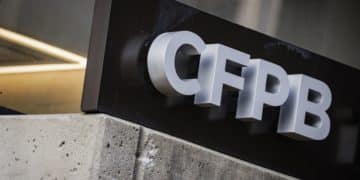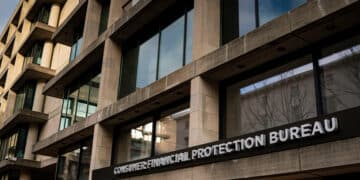The fuss about junk fees: Biden, CFPB, FTC collaborate
Anyone who has financed the purchase of a product or service, had a bank account, bought a car or purchased sporting event tickets has almost assuredly encountered what the Biden Administration and some regulatory agencies have labeled as “junk fees.”
Regulators have attempted to classify a variety of fees as junk fees, from late fees to convenience fees for purchasing concert tickets online. For a long time, these fees were ubiquitous and rarely challenged or controversial. But as Bob Dylan once sang: “The times they are a-changing.”
The Biden Administration, in conjunction with the Consumer Financial Protection Bureau (CFPB) and Federal Trade Commission (FTC), has made curbing junk fees a priority, proposed new rules designed to restrict or outright eliminate such fees in various industries and brought numerous regulatory and enforcement actions against companies for charging so-called junk fees to consumers. The plaintiff’s bar has taken note, and companies are now finding themselves faced with punative class actions brought by customers for charging these alleged junk fees.
Effort to curb junk fees
In January 2022, the CFPB launched its initiative to curb junk fees, issuing a Request for Information seeking input from the public on fees and costs associated with consumer finance products, including:
- Fees for things people believed were covered by the baseline price of the product or service;
- Unexpected fees;
- Fees that appeared too high; and
- Unclear fees.
The bureau was careful not to explicitly define what constitutes a junk fee when it launched its initiative, instead giving examples like: “punitive” credit card late fees, “resort” and “service” fees in the hotel and concert industries, and overdraft and insufficient funds fees.
CFPB then spent the next year highlighting additional junk fees through public comment, advanced notice of rulemaking, regulatory actions and circulars. For instance, in June 2022, the bureau issued an advisory opinion that, in its view, most convenience fees constitute a violation of the federal Fair Debt Collection Practices Act (FDCPA).
According to the bureau, such convenience fees violate the FDCPA when the fee is not expressly authorized in the consumer’s contract or permitted by law. Moreover, CFPB stated that the lack of a statutory prohibition on charging such a fee does not mean that the fee is permitted by law.
The advisory opinion was issued, in part, in response to a decision from a California district court finding that such pay-to-pay fees were not, in fact, a violation of the FDCPA when the fee was the subject of a separate, valid agreement permissible under state contract law.
That same month, the bureau issued notice of advanced proposed rulemaking (ANPR) designed to limit excessive late fees charged by credit card companies. In 2009, Congress passed the Credit Card Accountability Responsibility and Disclosure Act (CARD Act). One of the purposes of CARD was to curtail the numerous fees associated with credit cards, prohibiting fees like over-the-limit fees and “hidden” kickbacks to colleges marketing credit products to students. It likewise limited the amount a credit card company could charge for late fees, with the current limits at $30 for the first late payment and $41 for subsequent late payments.
As part of the June 2022 ANPR, the CFPB sought input from consumers and the credit card industry regarding credit card fees and costs, including information from card issuers on income generated from such fees, how such fees are set and whether permitted late fees are proportional and reasonable.
In February, the bureau announced specifics to curb junk fees in the credit card industry. Of note, the CFPB has proposed that the maximum fee for a late credit card payment would be $8. The bureau’s proposed rule would also prohibit late fees above 25% of the consumer’s required payment.
New CFPB guidance
In addition to the rulemaking, the CFPB issued guidance in October 2022 on two additional junk fees that it considered unfair or deceptive acts or practices. The CFPB’s compliance bulletin focused on:
- “Surprise depositor fees” and
- “Surprise overdraft fees,” which it defined as fee when the customer doesn’t reasonably expect their actions to incur an overdraft fee.”
Similarly, the bureau recently released a “special edition” of its Supervisory Highlights dedicated to all things junk fees, including more examples of impermissible junk fees in consumer products and services.
Specifically, CFPB highlighted the following:
- Unfair and unanticipated overdraft fees for transactions where the consumer had a positive balance at the time of the transaction. The CFPB said it had “already identified at least tens of millions of dollars of consumer injury in response to these examination findings, institutions are providing redress to over 170,000 consumers.”
- Assessing multiple insufficient funds (NSF) fees for one transaction. It noted that such unfair acts or practices cost consumers “millions of dollars.”
- Auto and mortgage loan servicers charging late fees in excess of the amounts permitted under the applicable consumer’s contract.
- Auto servicers charging unauthorized late fees after repossession and acceleration.
FTC joins In
The FTC joined the bureau’s crusade against junk fees in the summer of 2022 when it announced proposed rules targeting automobile sales. Among other things, the FTC’s proposed Motor Vehicle Trade Regulation Rule would prohibit car dealers from charging customers junk fees for “fraudulent” add-on products and services that allegedly provide no benefit to the customer. The proposed rule likewise would prohibit dealerships from charging “surprise” junk fees, like add-on products, without a customer’s clear, written consent after first being informed of the price of the vehicle without the inclusion of the add-on product.
The FTC signaled that it intends to expansively apply its authority to prohibit unfair and deceptive acts and practices pursuant to the FTC Act when it issued an ANPR addressing junk fees in a wide array of industries.
The FTC’s October 2022 ANPR defined a junk fee as “unfair or deceptive fees that are charged for goods or services that have little or no added value to the consumer, including goods or services that consumers would reasonably assume to be included within the overall advertised price; the term also encompasses ‘hidden fees,’ which are fees for goods or services that are deceptive or unfair, including because they are disclosed only at a later stage in the consumer’s purchasing process or not at all, whether or not the fees are described as corresponding to goods or services that have independent value to the consumer. These terms may overlap — a junk fee can be a hidden fee, but not all junk fees are hidden fees.”
The FTC’s comments made clear that its proposed rule would be significantly broader than anything proposed by the CFPB, noting that it intends to address fees in many industries, including, but not limited to “mobile cramming charges,” account fees, fees on fuel cards, auto dealer fees, hotel resort fees and hidden fees for academic publishing, among other items. While the FTC has historically brought actions against companies charging hidden fees, it made clear that a specific rule addressing these junk fees is necessary so the FTC could also bring civil penalties against businesses that violated the rule.
President Biden takes lead
These regulatory actions and initiatives flow directly from priorities set by the Biden Administration. As President Biden noted in a joint speech with CFPB Director Rohit Chopra and FTC Commissioner Lina Kahn in October 2022:
“One of the key things I’ve asked the council to take on was the unfair hidden fees known as junk fees, that are taking real money — real money — out of your pockets, real money out of the pockets of American families. Things like … surprise banking overdraft fees, excessive credit card late fees, hidden hotel booking fees or those huge termination charges to stop you from switching cable and internet plans to a better deal. Surprise charges that companies sneak into bills because they can.”
True to his word, Biden followed up in early February by releasing a fact sheet outlining the administration’s actions (including highlighting steps taken by the CFPB and FTC) to curb junk fees.
He also used the opportunity to present his proposed Junk Fee Prevention Act, legislation proposed in concert with the CFPB that has not yet been introduced in either chamber of Congress. Certain aspects of the bill will no doubt prove popular to much of the general public as it proposes crackdowns on hidden fees on tickets for sporting, music and other entertainment events. The proposed legislation would also ban airlines from charging seating fees for families traveling together. It would also eliminate early termination fees for TV, phone and internet service and stop “surprise” resort and destination fees.
It remains to be seen whether Congress considers the proposed legislation, although, in these hyperpolitical times, it is unlikely such legislation would be considered, much less passed, by a divided Congress.
The Takeaway
The Biden Administration’s commitment to tackling junk fees and its collaboration with the CFPB and the FTC have ushered in a significant shift in the regulatory landscape. Previously overlooked and widely accepted fees are now under intense scrutiny, leading to proposed rules and enforcement actions against companies charging such fees to consumers.
Part 1 of a 3-part series on junk fees. The next installment of this three-part series will examine recent regulatory, enforcement and private actions.
Jim Sandy is a partner at McGlinchey, where he advises clients in cases involving federal and state regulatory matters, arbitrations, consumer complaints filed with the Consumer Financial Protection Bureau, and state and federal lawsuits.
Auto Finance Summit, the premier industry event for auto lending and leasing, returns October 29-31 at the Bellagio Las Vegas and features fireside chats with Hyundai Capital America and Ford Credit. To learn more about the 2023 event and register, visit autofinance.live/afs/.






